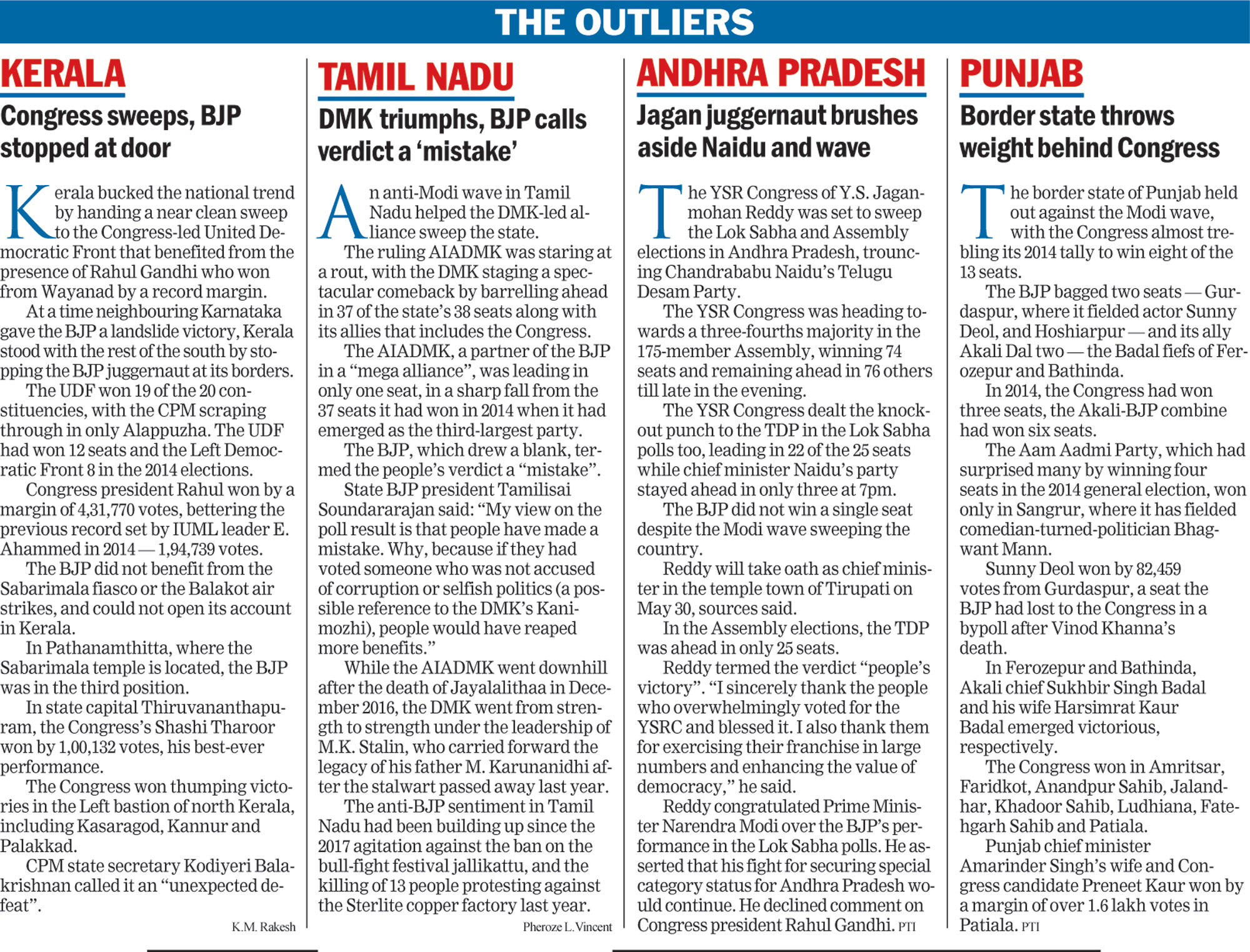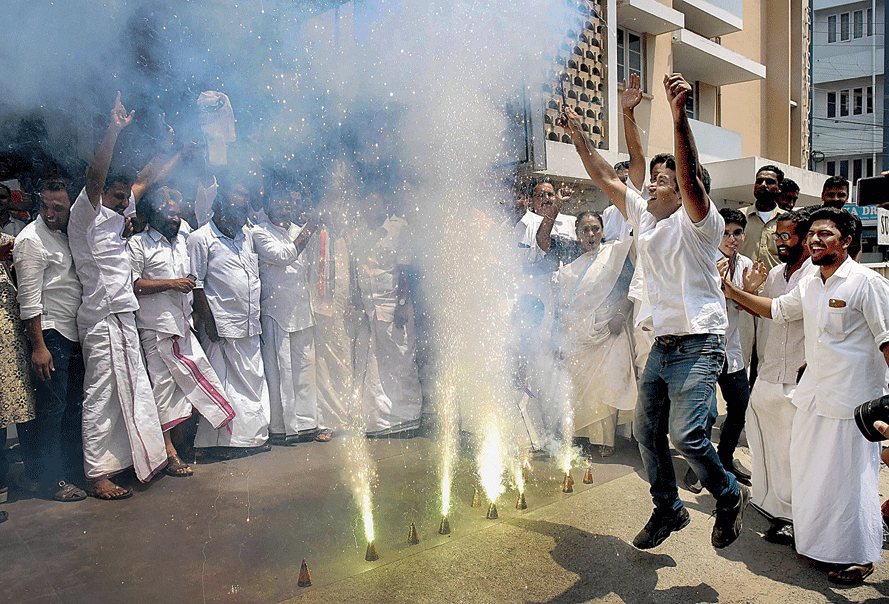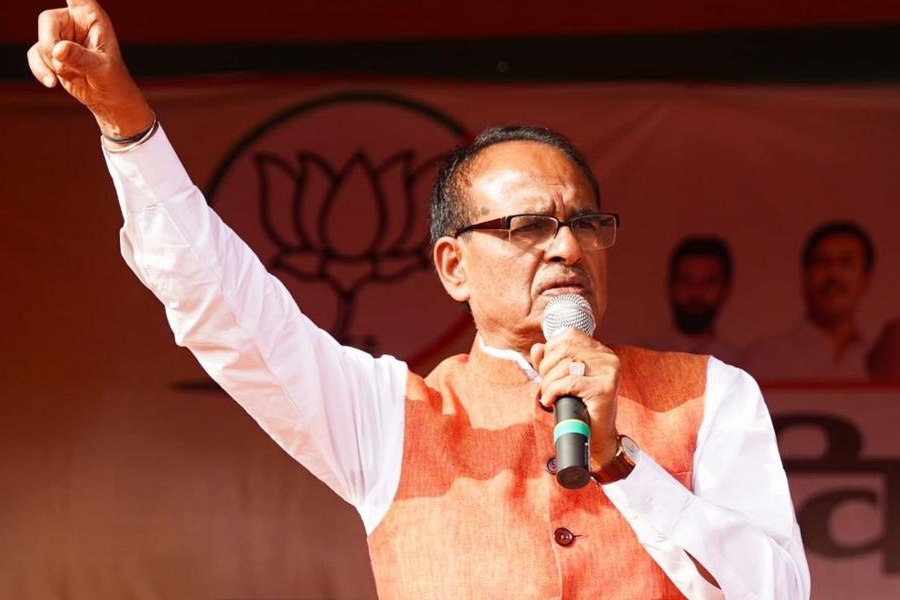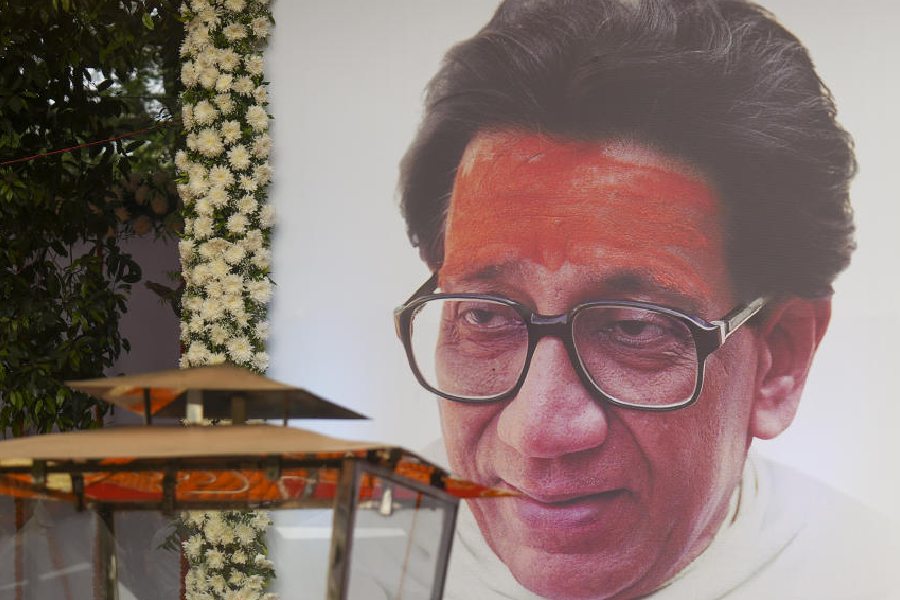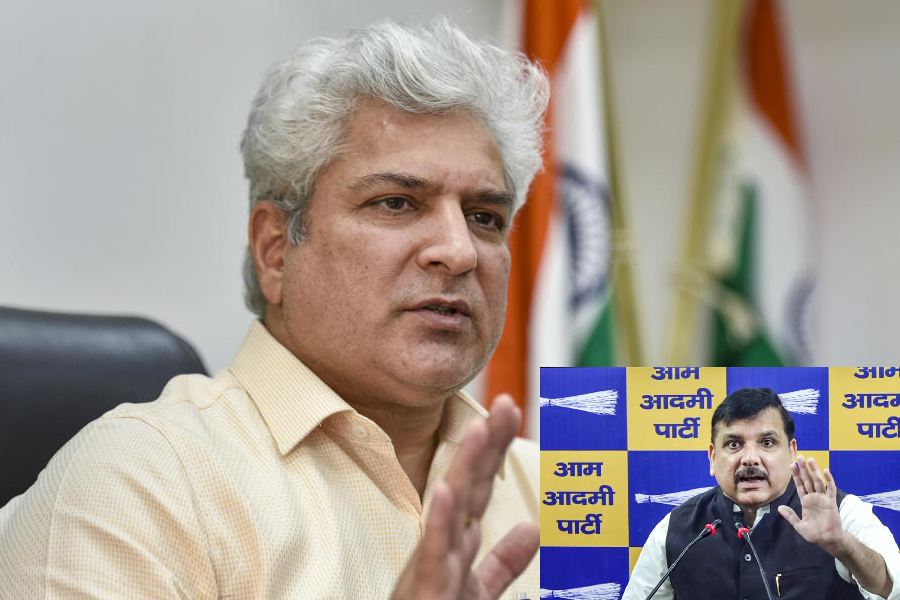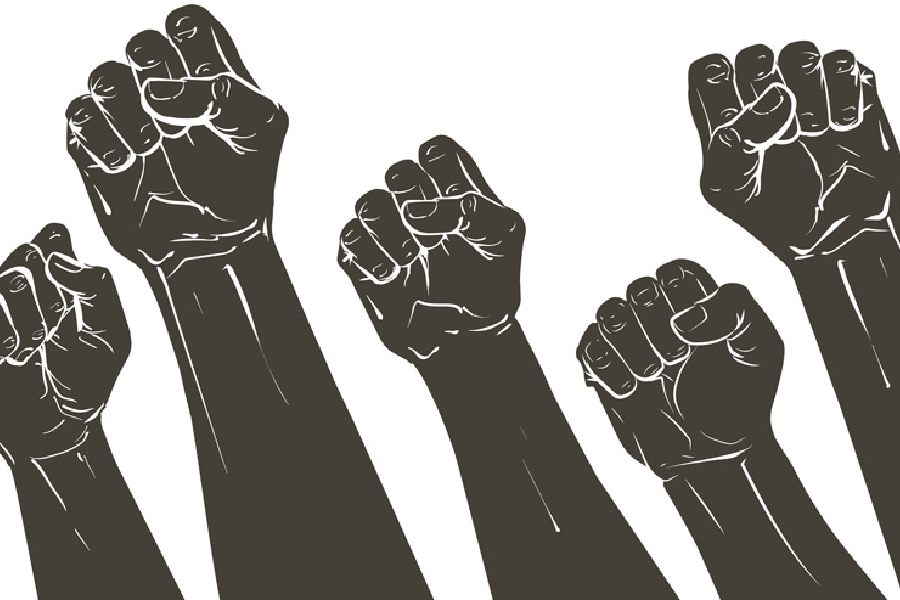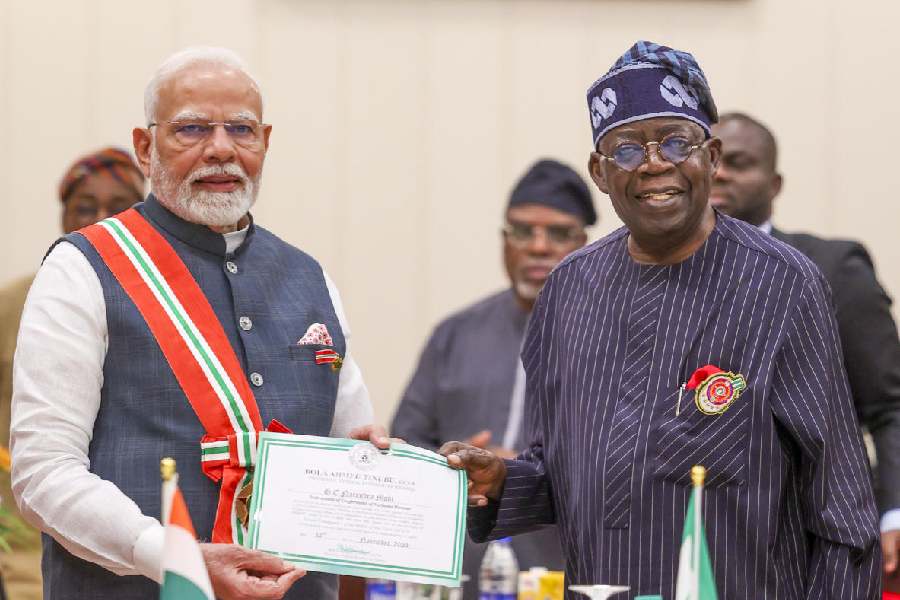Kerala held on to its record of never having sent a BJP MP to the Lok Sabha while Andhra Pradesh and Tamil Nadu joined the club this time round and Punjab, too, managed to contain the saffron camp to two seats out of 13 despite the Modi wave.
Ironically, in Kerala, it was an expectation of the Congress being able to put up an alternative nationally that appeared to have helped the Grand Old Party make a near-clean sweep of the state, losing only one of the 20 seats to the CPM-led LDF.
Where the Congress benefitted from this anti-BJP sentiment, it also gained from the anti-Left mood among upper caste Hindus in the wake of chief minister Pinarayi Vijayan’s proactive — seen as “aggressive” in conservative circles — stand on the Sabarimala stand-off.
In the process, this vote which may have gone to the BJP in conventional politics shifted en masse to the Congress in the hope of teaching Vijayan a lesson.
In a record of sorts, as many as 11 of those elected on Congress-led UDF tickets have won by more than a lakh votes, a rare phenomenon in Kerala where margins are usually in the vicinity of 10,000 to 20,000 votes with margins hitting the six-figure mark only in a couple of seats.
For the BJP, there is not much solace even in vote-share improvement. Its vote share is 12.9 per cent — up from the 10.3 per cent in 2014 but below the 14 per cent it had got in the local body elections in 2015.
If it was a cocktail of anti-BJP and anti-CPM politics that stopped the Modi wave from entering Kerala, in Tamil Nadu it was a mix of Dravidian politics, anti-Modi sentiment and skillful coalition management by DMK chief M.K. Stalin that prevented the BJP from even retaining the one it had last time.
Tamil Nadu will allow the faith in eleventh-hour pre-poll alliances given the fact that they have failed elsewhere. Stalin gave away half the seats in Tamil Nadu and Puducherry to the DMK’s allies in the nine-party Secular Progressive Alliance it led.
While he managed the arithmetic well, the DMK was also able to mobilise an anti-BJP sentiment over a host of issues ranging from the way the Modi government turned a blind eye to Tamil farmers protesting in Delhi with skulls in their hands, the Centre’s attitude towards the jallikattu agitation, the Cauvery water-sharing issue and, of course, GST and demonetisation.
In fact, if there was any state that harboured a strong anti-Modi mood, it was in Tamil Nadu where people have even defied the Prime Minister’s security — that brooks no nonsense — to release black balloons during one of his visits.
This kind of mobilisation of sentiment against the BJP translated into votes with Stalin helming the rainbow coalition that tapped into the strengths of smaller parties in their respective spheres of influence, helping the CPI and the CPM attain a 100 per cent strike rate in Tamil Nadu.
Andhra Pradesh joined Kerala and Tamil Nadu in making it a “BJP-mukt” troika in the south essentially because both the ruling TDP — which was an NDA constituent till a year ago — and the YSR Congress managed to convince the people that the saffron party had reneged on its 2014 election promise of granting special status to the state following the creation of Telangana.
Between the two rivals, they continuously drummed in this one message — borrowing a leaf out of the BJP’s propaganda textbook — to keep the saffron wave from re-entering the state where it had a presence in the 16th Lok Sabha riding piggyback on the TDP.
Up north, it was only Punjab that held its own, even against the nationalism narrative of the BJP despite being a state bordering Pakistan and having lived through the partition.
Unlike in Rajasthan — another border state — the Balakot-related rhetoric that was used by the BJP to good effect even in far-off Bihar, Punjab remained immune to it with many people, in fact, preferring good relations with Pakistan.
Here, the Congress benefitted from the collapse of the Aam Aadmi Party (AAP).
In 2014, the Congress, AAP and the Shiromani Akali Dal had shared the spoils equally — picking up four each — while the BJP got one.
This time, the BJP has picked up two seats — the second courtesy actor Sunny Deol — and the Akalis are down to the two Badal family seats.
In Punjab, what did the NDA in was continuing anger against 10 years of Akali-BJP rule besides the adverse effects of GST that was blamed directly on Modi.
Chief minister Amarinder Singh once again delivered as promised to the Congress in lieu of a free hand, matching Modi word for word by playing the nationalism card to the hilt soon after the Pulwama blast to blunt any effort by the BJP to use it in his state.
